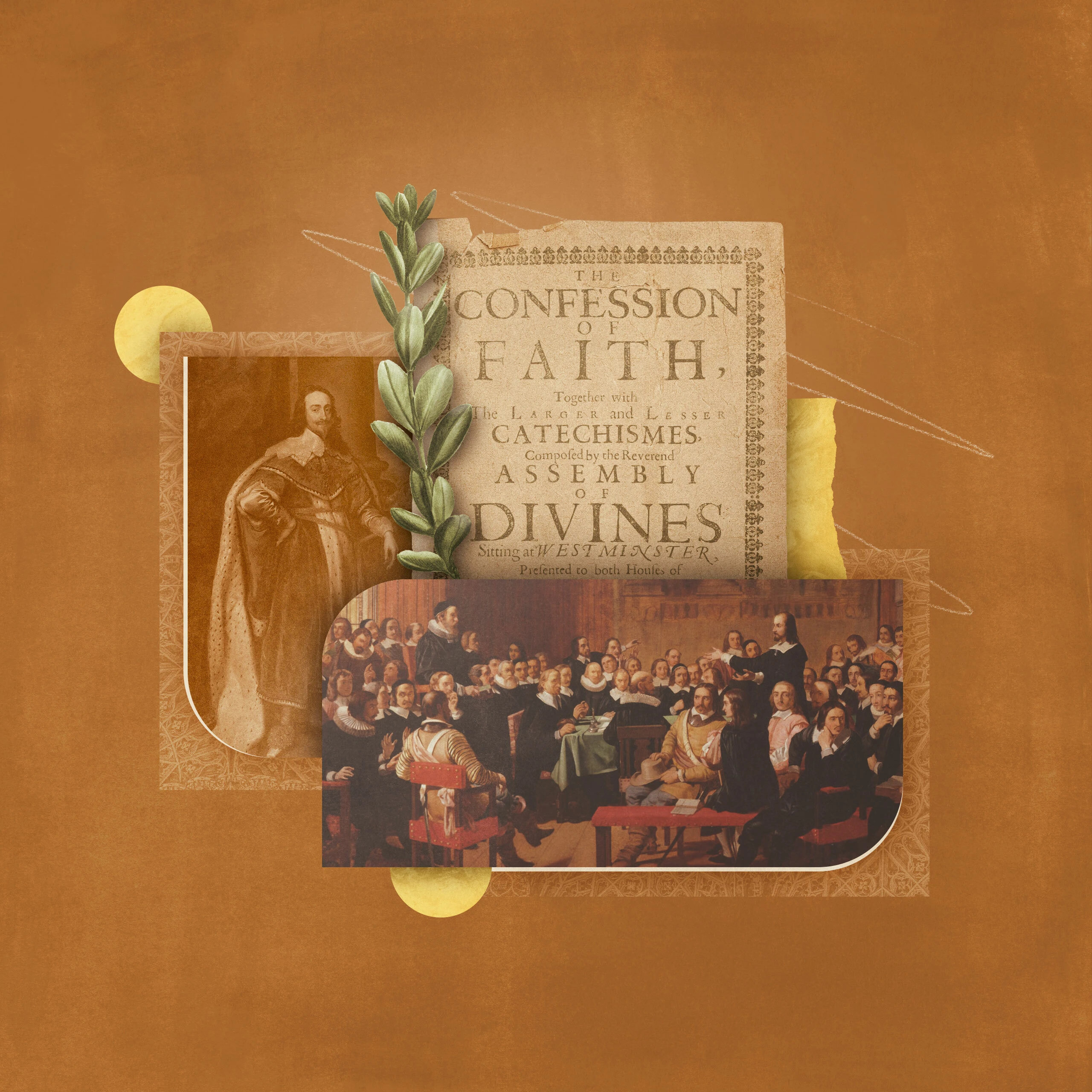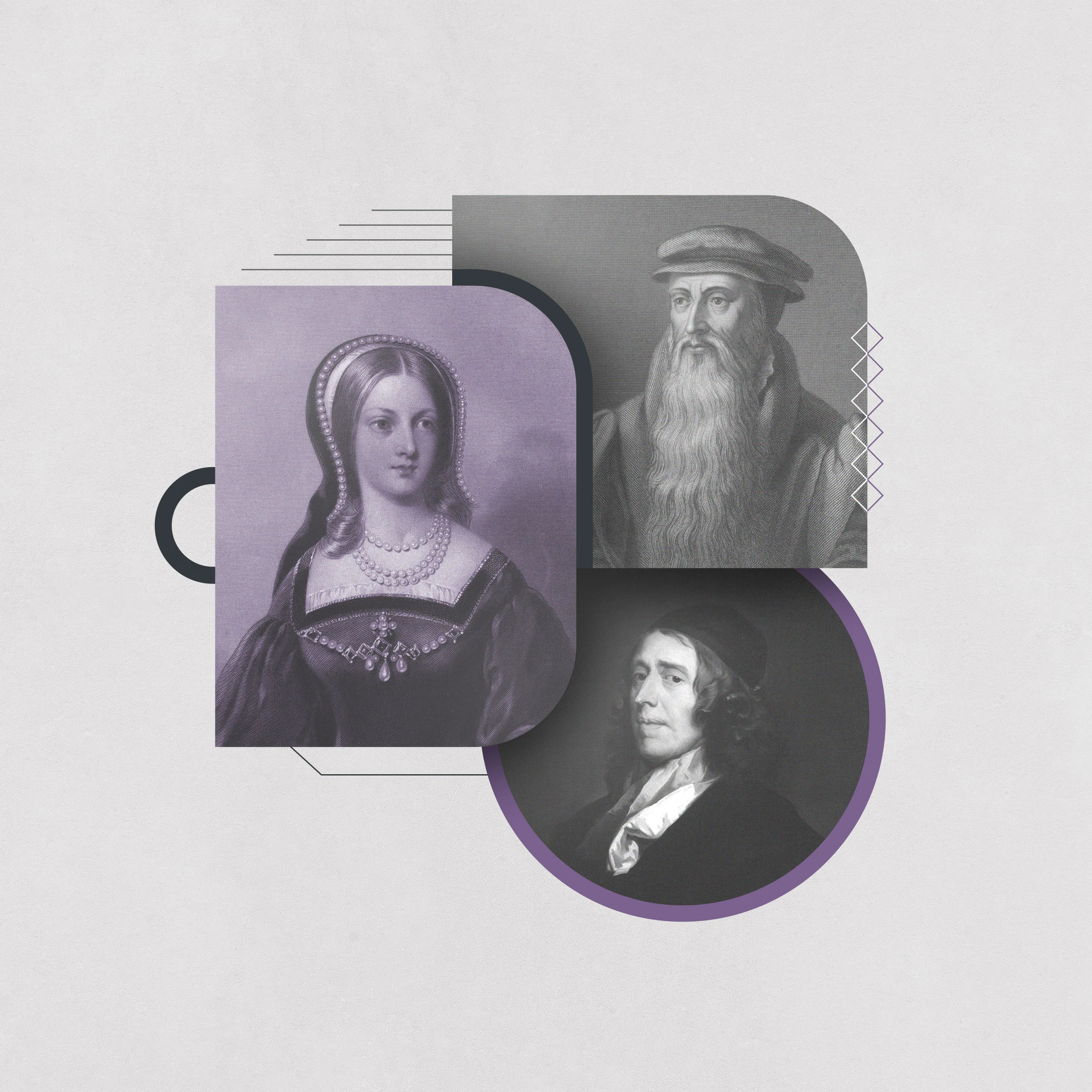Who Were the Westminster Divines?

The Westminster Assembly (1643–53) met during a period of intense religious and national turmoil in England and produced theological standards—notably, the Westminster Confession of Faith and the Larger and Shorter Catechisms—that continue to have worldwide significance and influence today.
Background and Context
At the outbreak of the English Civil War (1642–51) between King Charles I and Parliament, the church in England was in disarray. While a via media (“middle way”) between a Protestant theology and Roman Catholic form—retaining the polity, look, and religious practice of Rome—had been firmly established under Queen Elizabeth I in 1559, the outworking of that compromise continued into the seventeenth century. Because of this, many sought to purify the Church of England from its Roman Catholic vestiges, known both then and today as the “Puritans.”
The Puritans wanted to reform the Church of England in its biblical worship and religious expression, which would consistently apply a Protestant theology to the everyday Christian life. Because many of the Puritans rejected the prescribed homilies, prayers, and liturgy codified in the Church of England’s Book of Common Prayer, they became dissenters and nonconformists.
Through the late sixteenth century and into the early seventeenth century, the clash between the Catholic-leaning clergy and the Puritan element ebbed and flowed until King Charles overplayed his imperial hand. In 1642, he raised the royal standard against Parliament, thus beginning the English Civil War. The next year, Parliament called together what some consider to be the most gifted, godly, and theologically astute assembly ever to meet in the history of the church.
The Westminster Assembly
Comprised of 121 English clergymen, thirty laymen, and a non-voting (but highly influential) delegation of Scottish Presbyterians, the Assembly included notable theologians and pastors such as Thomas Goodwin, Edward Calamy, William Gouge, and Jeremiah Burroughs, along with Scottish commissioners such as George Gillespie and Samuel Rutherford. The assembly met at Westminster Abbey in London from 1643 to 1649, holding more than one-thousand sessions, and continued to meet thereafter sporadically until 1653.
The Solemn League and Covenant (1643) between the English Parliament and Scotland paved the way for both a military and ecclesiastical alliance, which not only bolstered Parliament’s army against King Charles, but also influenced the content of the Westminster Standards. Though not specifically Presbyterian documents in terms of an elder-led church polity, the Westminster Standards, with help from the Scottish Presbyterians, nevertheless gave Presbyterians (as well as Independents, among others) freedom to exercise their forms of church government within the purview of Reformed confessionalism.
The assembly’s work continues to govern the beliefs and practices of Reformed churches all over the world today, embodying a profound engagement with Scripture and theology.
The Westminster divines (or commissioners) were gifted men. They were competent in the Scriptures, in theology, in the original languages of Hebrew and Greek, and in Latin, and they could recite from memory large sections from the church fathers. They had learned from the early generations of Reformers (e.g., Luther, Calvin, Zwingli, Knox, etc.) and sought to clothe Reformed theology with pastoral and practical application. They also maintained careful observance of private and family worship, of ordering the family according to the instructions in the Bible, and of keeping the Lord’s Day as the Christian Sabbath. The Westminster divines were concerned with experiential Christianity and warm pastoral sympathies but also uncompromising in their stance against heresy, Roman Catholicism, false teaching, and unrepentant sin.
The Assembly’s Accomplishments and Significance
The Christian church has long cherished the practice of confessing the faith to define, unify, clarify, distinguish, guard, and contend for the faith once delivered to the saints (Jude 3). Against the backdrop of theological confusion and inconsistent worship, the Westminster divines—using the Church of England’s Thirty-Nine Articles and James Ussher’s Irish Articles of 1615 as a foundation—produced a new Confession of Faith (1646), Larger and Shorter Catechisms (1647), and a Directory of Public Worship (1644). Parliament also requested the divines add prooftexts to ground each statement in the Bible.
The Westminster Confession of Faith is arguably the Assembly’s most enduring achievement, comprised of succinct and salient theological chapters on topics such as Scripture, God, creation, anthropology, sin, redemption in Christ, sanctification, the church, worship, marriage, the sacraments, and the last judgment.
The Larger and Shorter Catechisms generally follow the contours of the Confession, but contain larger portions devoted to the Ten Commandments and the Lord’s Prayer. Moreover, while the Larger Catechism places an emphasis on the church, the Shorter Catechism places an emphasis on the individual. Both were designed as educational tools for teaching doctrine to both clergy and laity, emphasizing clarity and precision in theological understanding.
The Directory of Public Worship was created, in part, to replace the mandatory liturgy outlined in the Book of Common Prayer, and it become a thoroughly consistent Protestant and Reformed handbook on worship. The directory emphasizes the regulative principle of worship, the centrality of the Bible, the proper administration of the sacraments of baptism and the Lord’s Supper, and pastoral considerations related to visiting the sick, fasting, and burying the dead.
The Westminster Assembly stands as a pivotal moment in the history of Reformed theology and the development of Protestant Christianity. Its enduring legacy is seen not only in its doctrinal formulations but also in its impact on ecclesiology and Christian thought. The assembly’s work continues to govern the beliefs and practices of Reformed churches all over the world today, embodying a profound engagement with Scripture and theology.


